
TOMSY2022: Building Synergy between Academia, Industry, and Government
How do you gauge the success of a scientific conference? If it is based on the number of attendees, it would be hard to dispute the success of the 3rd Tropical Ocean and Marine Sciences International Symposium (TOMSY2022), a biannually scientific event held at Universiti Malaysia Terengganu Conference Centre (UMTCC) from 6-7 November 2022 and organized by the Institute of Oceanography and Environment (INOS).
With over a hundred attendees this year, participants have watched it grow with the participation of industry partners and marine science communities, such as Hydrokinetik Technologies Sdn. Bhd., Marine Coastal and Delta Sustainability for Southeast Asia (MARE) and Institute of Oceanography and Maritime Studies (INOCEM) of International Islamic University Malaysia (IIUM).
As a leading university for marine science study in Malaysia, collaboration with local industries will be a great platform to enhance UMT’s presence and become more relevant in the marine-related industry. This aligns with UMT’s niche area to boost scientific research by applying advanced technology to fulfil industrial needs.
The MARE project, co-funded by the Erasmus+ Programme of the European Union, aims to provide support to academicians in Asian higher education institutions (HEIs) to design and implement new and improvised syllabus of courses related to the marine environment and sustainability. The project highlights the issue as the marine ecosystem and sustainability have become an environmental governance challenge in the Asian partner countries.
This year marks the 3rd TOMSY2022, which began in 2018 as a platform for marine communities to spread knowledge in marine science research with the theme “Ocean Research for a Sustainable Future”. The theme is relevant to the global agenda of achieving a sustainable and healthy ocean, as indicated in SDG14 and the UN Ocean Decade. The TOMSY2022 has provided a high-impact research discourse that can be further translated or transformed into scientific-based management, and we can achieve a global goal of a healthy ocean for a healthy planet.
The event began with a keynote speech by Prof. Dr Biswajeet Pradhan, the Director of the Centre for Advanced Modelling and Geospatial Information Systems (CAMGIS) of the University of Technology Sydney, Australia. Prof Pradhan highlighted that the application of machine learning and spatial intelligence is rapidly gaining the attention of marine scientists due to their promising results. This is true with less time getting reliable data compared to laborious manual monitoring.
The conference was followed by the plenary talk by Dr Salvatore Aricò from UNESCO’s Natural Sciences Sector, which discussed the challenges in bridging science to policy implementation. This includes discussing how the scientific community and policymakers can collaborate to facilitate scientific advice for implementing the SDGs.
While the other two plenary speakers are Prof. Shing Yip (Joe) Lee from The Chinese University of Hong Kong with his talk entitled; ‘Mangrove microphytobenthos – a neglected driver of estuarine trophodynamics’, and Prof. Dr Wan Izatul Asma Binti Wan Talaat, Head of Centre for Ocean Governance of INOS, entitled; ‘The Role of Ocean Governance in Translating Science into Policies ~ Accelerating the National Delivery to the Ocean Decade’.
On behalf of the organizing committee, we would like to thank all participants that came this year to join us. We hope they experienced a deep dive into marine research topics while creating good synergy between academia, industry and government.
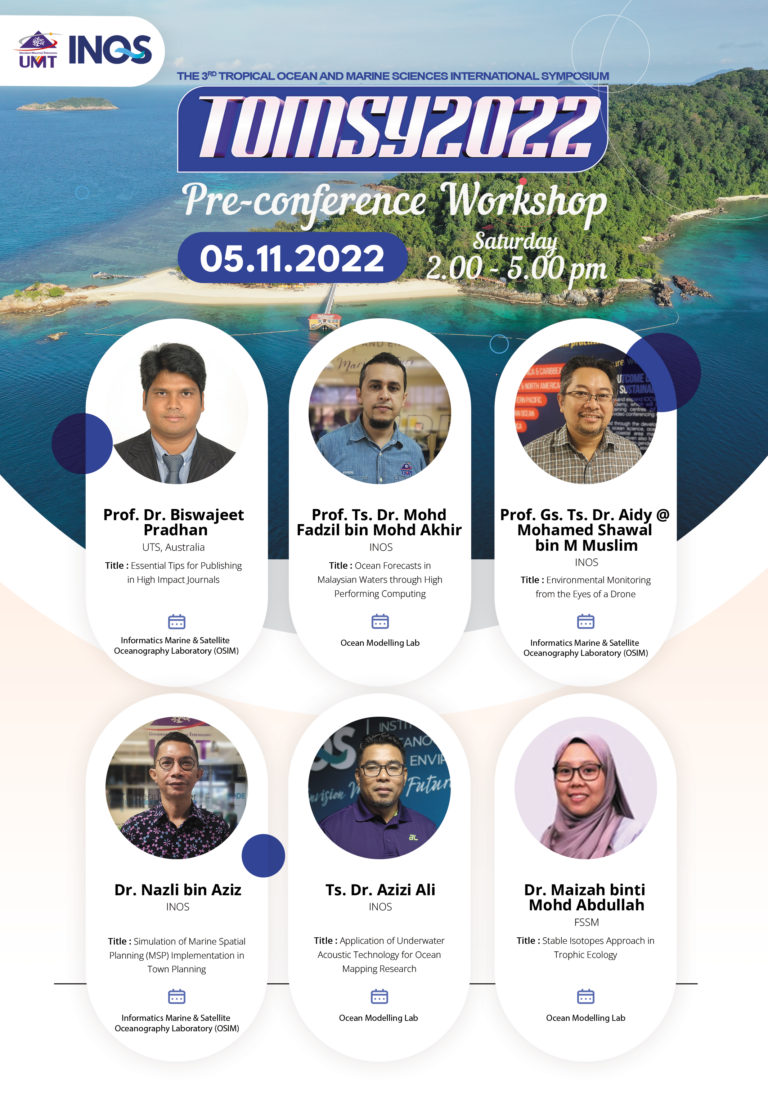
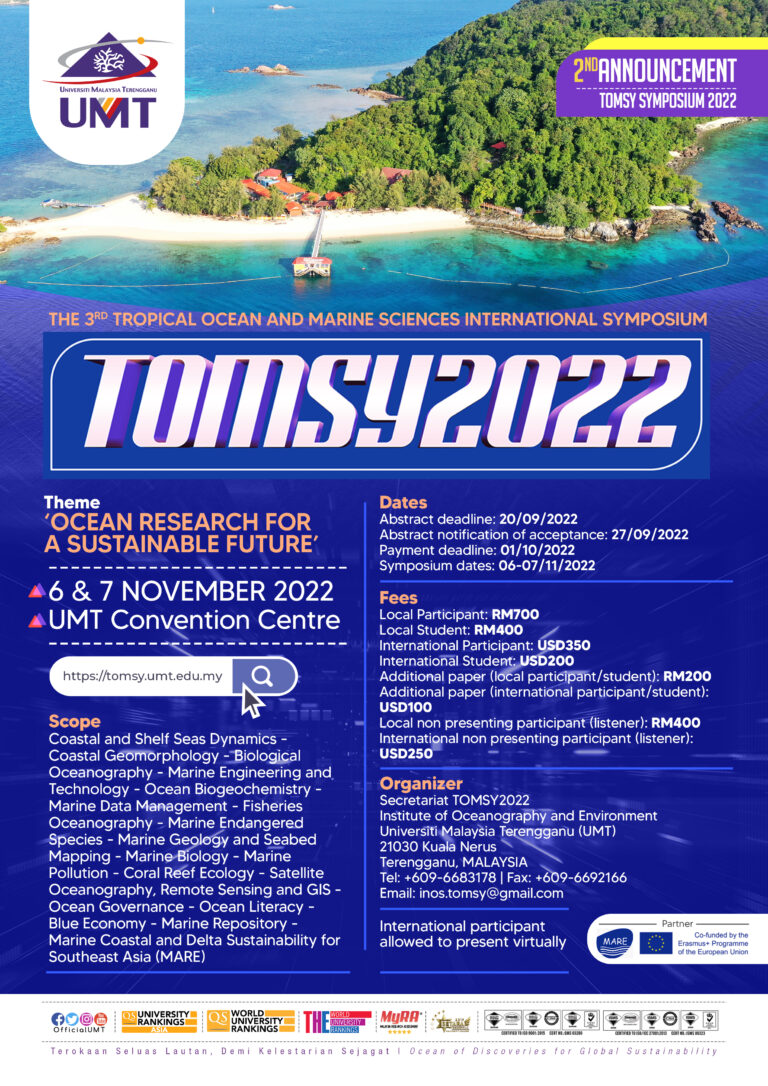


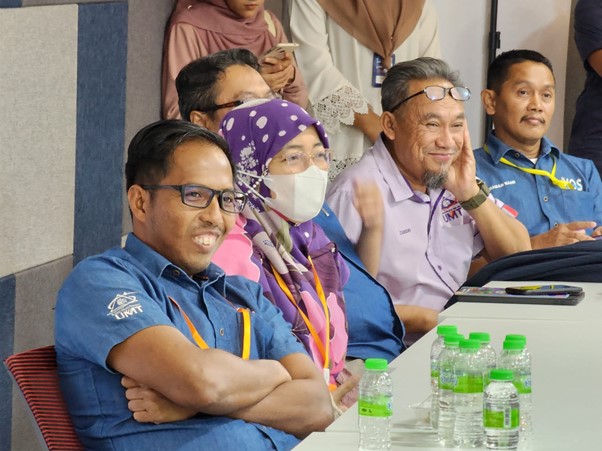
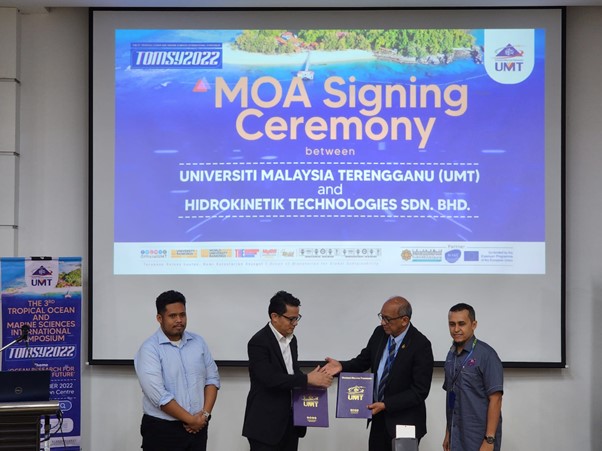
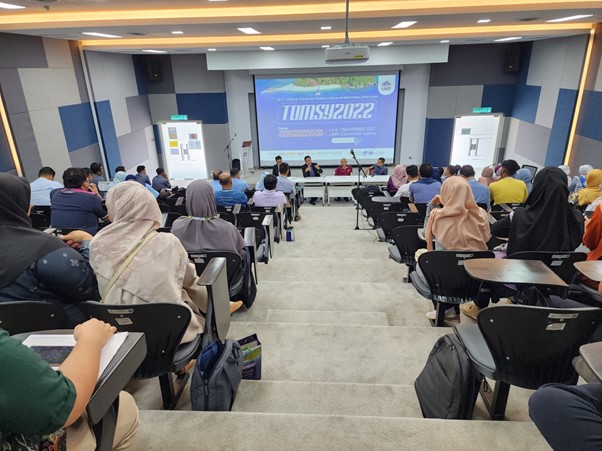
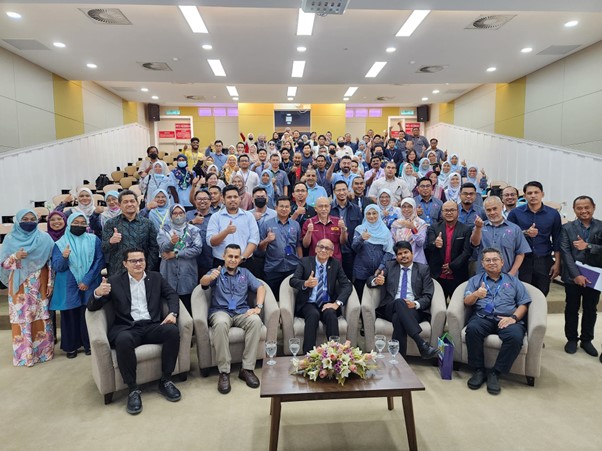
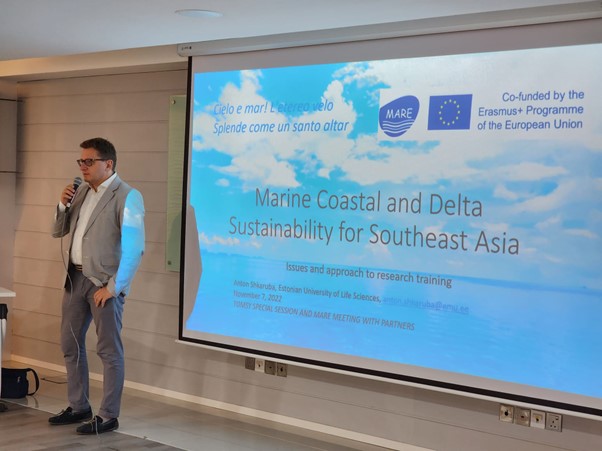

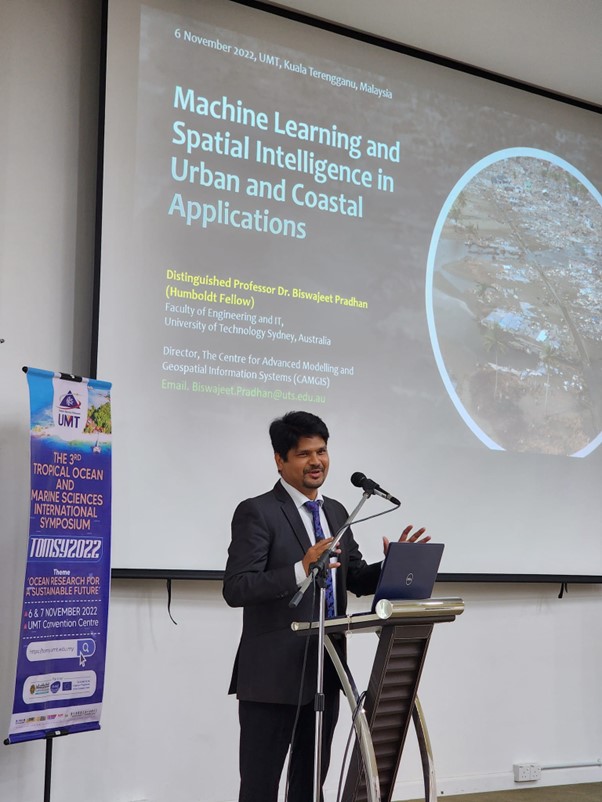
Copyright © INOS | Institut Oseanografi dan Sekitaran | Universiti Malaysia Terenganu | 2022. All rights reserved.